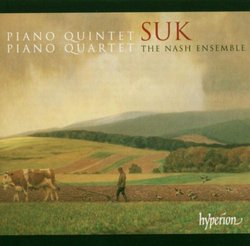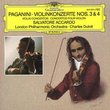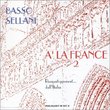Amazon.comMusic runs in the family of Josef Suk: he studied with Dvorák and married his daughter Ottilie, and his namesake, the well-known violinist/violist/conductor is his grandson. Co-founder of the famous Czech Quartet, he became its second violinist; the Four Pieces are dedicated to its leader, Karel Hoffmann. Although highly respected and frequently performed in his native Czechoslovakia, his music has been unjustly neglected elsewhere---a great pity, for he was an excellent composer. The Quintet and Quartet were written before he turned 20 but already display a distinct personal style (despite some inevitable echoes of Brahms and Dvorák, their respective dedicatees), and a firm sense of structure, with imaginative, far-ranging modulations and masterful pacing and build-ups. The texture includes extensive solos for every instrument, carefully balanced ensembles and forceful unisons; the individual parts are extremely difficult, with much stratospheric writing for the first violin and brilliant passages and massive chords for the piano. The Four Pieces, written in 1900, one of the best groups of character pieces in the repertoire, demand great virtuosity as well as collaborative intimacy. With its soaring melodies, Suk's style is very romantic, ranging from melting lyricism to intense drama, from pleading, yearning, passionate ardor to ironic humor. Tinged with melancholy, these early works presage the heart-breaking lamentation of his late symphonies, notably "Asrael," written after Dvorák's death in 1904 and Ottilie's the following year. The performances of the Nash Ensemble on this recording are splendid. These English musicians exhibit an extraordinary affinity for Suk's idiomatic Czech rhythms and quick, mercurial mood and character changes, playing with eloquence, affection, expressiveness, and an invariably beautiful sound. This fine record, along with this year's celebrations of the centenary of Dvorák's death, should win a sadly underrated composer the recognition he deserves. --Edith Eisler





